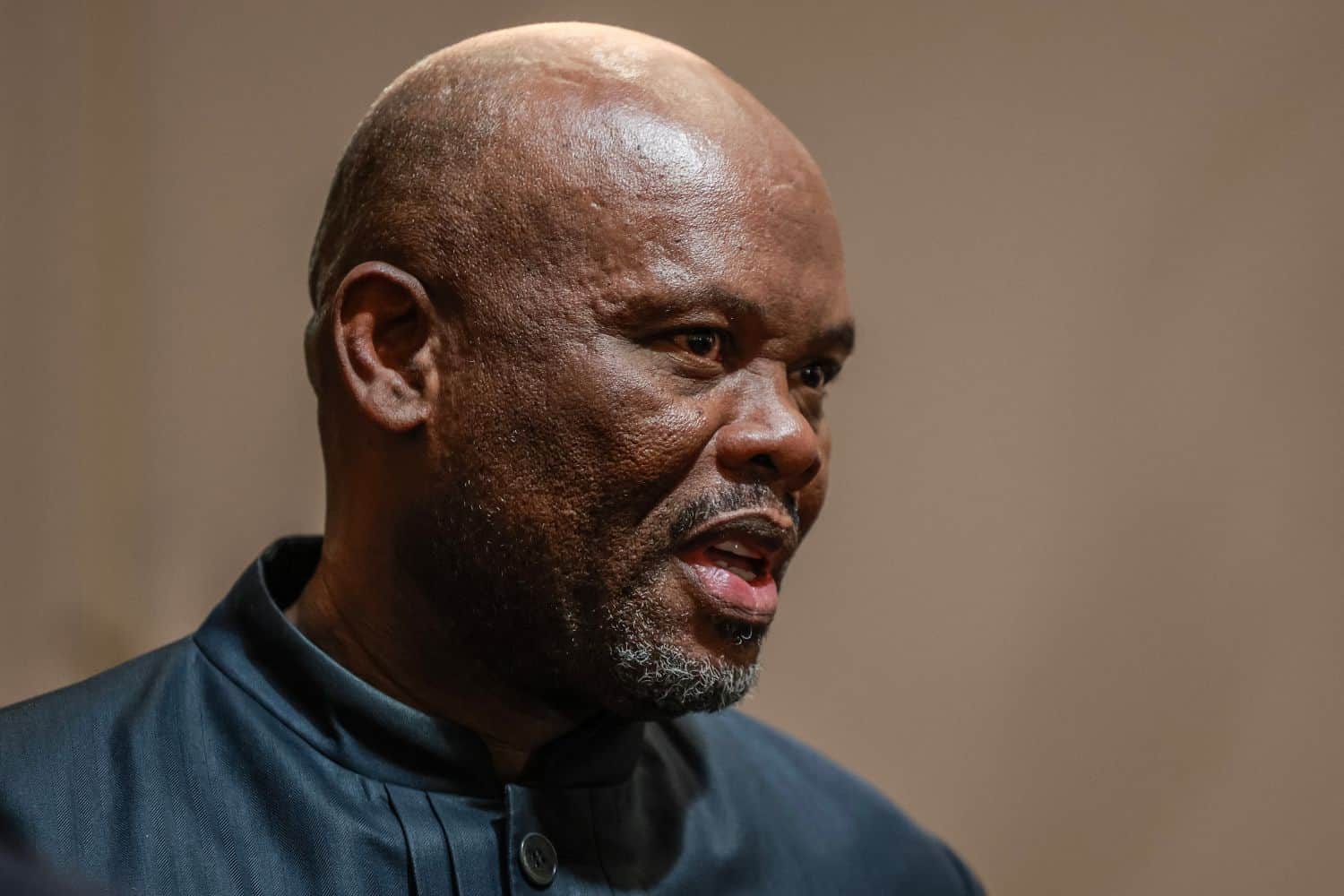Sibiya was allegedly investigated for corruption and fraud by the City of Johannesburg.

KwaZulu-Natal (KZN) police commissioner Nhlanhla Mkhwanazi has questioned Deputy National Police Commissioner for Crime Detection Shadrack Sibiya’s rise through the police ranks, despite serious allegations looming over him.
Sibiya, together with Police Minister Senzo Mchunu, has been accused of playing a role in the disbandment of the political killings task team based in KZN.
According to Mkhwanazi, Sibiya ordered the removal of 121 dockets from the team, which were then shelved at the South African Police Service (Saps) head office to “catch dust” and derail investigations into a Gauteng-based drug cartel.
Madlanga commission: Mkhwanazi testifies about Shadrack Sibiya
On Friday, Mkhwanazi continued his testimony before the Madlanga commission at the Brigitte Mabandla Justice College in Pretoria.
The commission, chaired by retired judge Mbuyiseli Madlanga, is probing allegations of political interference and corruption in the law enforcement and judicial systems.
During his testimony, Mkhwanazi outlined Sibiya’s career history.
He revealed that before Sibiya was appointed as the head of Saps Organised Crime Unit in July 2022, he had been dismissed by the Directorate for Priority Crime Investigation (DPCI), also known as the Hawks.
However, Sibiya appealed his dismissal, and Saps did not oppose the appeal.
ALSO READ: Court dismisses Shadrack Sibiya’s application to go back to work
By the time he won his case, Sibiya was working for the City of Johannesburg as the head of Group Forensics and Investigation Services (GFIS).
Mkhwanazi explained that in June 2022, the Johannesburg Metropolitan Municipality wrote to then Police Minister Bheki Cele seeking urgent intervention.
The letter, he said, flagged the potential risk Sibiya posed to the police ahead of his appointment as deputy national police commissioner.
The correspondence revealed that Sibiya was under investigation for corruption and fraud involving R3.5 million in unlawful gratification and R580 000 in irregular expenditure by the City of Johannesburg.
Watch the Madlanga commission of inquiry below:
Mkhwanazi told the Madlanga commission that the city was concerned Sibiya would escape accountability because of his new position.
“The reason why the city wrote this letter to the minister of police, I cannot explain, but what is of interest to me is that the city is already flagging a risk that is associated with the individual that is coming to us,” he said.
“With this warning, the management should have taken a decision of not placing this person in the heart of the police.”
Sibiya’s ‘questionable background’
Mkhwanazi went on to question Sibiya’s promotion to deputy national commissioner just one year after being appointed as head of Saps’ organised crime, despite the City of Johannesburg’s allegations and his previous dismissal from the Hawks.
“It’s just strange that the same organisation dismissed this man, a year later, when he applies to court [to challenge the dismissal], the same organisation doesn’t file papers to oppose that court process, and the same organisation brings him back and promotes him a year later.
“I don’t know what he has done on his performance agreement that was so exceptional in this term, despite this warning, that justified his promotion to get into this position.
“Now, we find ourselves here with an individual who came into the organisation with his questionable background.”
Mkhwanazi noted his concern that important divisions within Saps, including Crime Intelligence, currently report to Sibiya, who was recently suspended after initially being placed on leave of absence.
NOW READ: ‘He is not being punished’: Masemola tells court Sibiya’s case is ‘premature’






